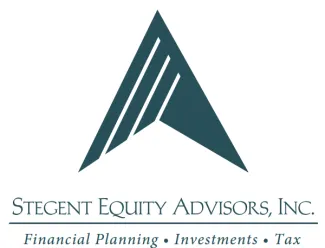An Investor should always do research on potential Advisors. Below you will find a list of questions an Investor should have answered about potential Advisors, as well as our answers.
-
Are you willing to create a fiduciary relationship?
Yes. A fiduciary owes his clients a duty of utmost good faith, and full and fair disclosure of all material facts. An advisor owes his client a fiduciary duty with respect to all services undertaken on the client’s behalf. An advisor’s fiduciary duty includes the duty of care and the duty of loyalty to clients. Your advisor should state in writing that a fiduciary relationship exists.
-
Do you have a sales quota that you have to meet periodically to stay affiliated with your present firm?
No. Advisors who do may be pressured to utilize products that help them meet their goals rather than your goals.
-
What is the difference between commissions and fees? How do they affect our relationship and your decisions on how to invest my money?
Investment companies pay commissions to advisors on products sold to you. You pay fees to your advisor for ongoing advice provided to you. Commissions do not prevent a fiduciary relationship; however, having a financial interest in the products sold to you could cloud the relationship’s transparency.
-
What is the mix of commissions and fees in your annual revenues?
100% Fees. We are fiduciaries who do not accept income from any sources except our clients. This allows us to be objectively focused only on your best interests.
-
Do you pay your own rent and business expenses? Alternatively, does a home office pay them?
Yes, I pay my own rent and business expenses, not a home office. An advisor who does not pay his or her own expenses is probably under the control of a larger organization that may influence the advisor’s decisions on how and where to invest your money.
-
If I buy investment products through you, and I decide to move to another advisor, will those products be transferable to the newly named advisor without having to be liquidated?
Yes. The ideal agreement is one you can terminate without penalty. Advisors who utilize proprietary products are preventing you from easily terminating your agreement because to do so will require that your investments be liquidated prior to being transferred. We do not utilize any proprietary products and most investment products we utilize are tradable through any full service or discounted broker. Products that won't transfer are liquidated penalty free.
-
What designations or educational credentials do you have?
Certified Public Accountant, Personal Financial Specialist, Certified Financial Planner
-
How many hours of financial planning related continuing education do you pursue annually?
As a CPA, I am required to have 120 hours every 3 years; as a Personal Financial Specialist, 60 hours every 3 years; and as a CFP, 15 hours every year
-
Do you offer continuous, ongoing advice regarding my financial affairs, including advice on non-investment financial issues?
Yes. Your advisor should be able to look at your complete financial picture and offer you objective, wealth management advice covering all areas of your financial life.
-
Do you take possession of, or have access to my assets?
No. Some advisors place your assets in a limited partnership or pooled account and then manage them with little or no transparency. Your assets will always remain in a brokerage account with your name on it and you will see every transaction posted to it.
-
Does any member of your firm act as a general partner, participate in or receive compensation from investments you may recommend to me?
No. Some advisors are required to share their revenue with one or more superiors. This arrangement may, at the least, pressure the advisor to utilize high commissioned products, and most certainly creates a higher cost structure that you must pay to support.
-
Will you earn income from any of the following sources on my assets that you manage?
12(b)-1 fees - No
Trailing commissions of any sort - No
Surrender charges - No
Back-end fees - No
Soft dollar benefits - No
Contingency fees - No
Eligibility for sales prizes - NoAll of these items are examples of hidden commissions that are paid to some advisors. Your advisor should be willing to disclose which products carry these commissions, how much the commissions are costing you, and why the advisor is utilizing these investments over those that do not generate any of these commissions.
-
Do you invest in the same investment products that you will recommend to me?
Yes. If the products are not good enough for the advisor, why should they be good enough for you?

